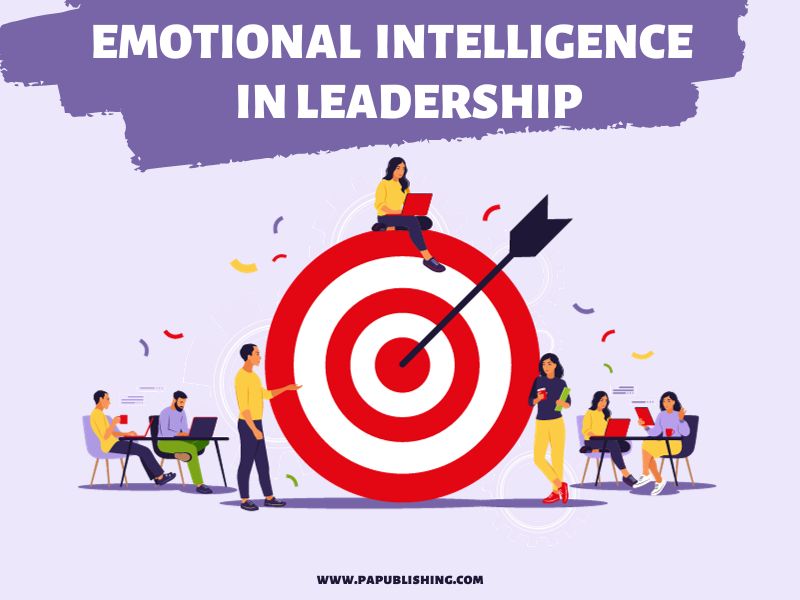How to Emotional Intelligence in Leadership | It is Worth?
By 2030, a 26 percent rise is anticipated in the need for emotional skills. Emotional intelligence (EI) plays a vital role in business leadership. Understanding, managing, and leveraging emotions can significantly influence one’s effectiveness as a leader. This article highlights what is emotional intelligence in leadership, offering examples of its applications and suggestions for its enhancement.
Understanding Emotional Intelligence in Leadership
Emotional intelligence encompasses five key components:
- Self-awareness
- Self-regulation
- Motivation
- Empathy
- Social skills
Leaders with these traits are better equipped to navigate the complexities of the business world, as they can read situations accurately. Furthermore, they can adapt their behavior to fit the context and build strong team connections.
Emotional Intelligence in Leadership: A Symbiotic Relationship
A survey of 500 people managers revealed that emotional intelligence is the critical component of achieving success in guiding teams through change (44%). This holds true not only for navigating change but also for addressing employees’ concerns (37%), providing feedback and conducting appraisals (31%), as well as identifying talent (25%).
So, emotional intelligence and leadership are interconnected concepts. A leader’s emotional intelligence directly influences their leadership effectiveness. Leaders who fully grasp the significance of emotional intelligence not only foster strong team dynamics but also stimulate a culture of innovation.
By understanding their team members’ emotions and needs, they can create an environment where collaboration thrives and creativity flourishes. This approach empowers individuals to contribute more effectively. It also paves the way for sustained growth within the organization. In essence, integrating emotional intelligence in leadership is a driving force behind lasting success.
How to Improve Emotional Intelligence in Leadership
Improving emotional intelligence is a continuous process that involves self-awareness and active effort. To improve emotional intelligence for leadership:
- Practice Self-Reflection:
Regularly assess your emotions and reactions to different situations. This self-awareness helps you understand how your feelings influence your leadership style.
- Develop Empathy:
Put yourself in others’ shoes to understand their perspectives and emotions. This skill fosters better communication and collaboration.
- Active Listening:
Pay close attention to verbal and nonverbal cues when engaging with team members. This not only shows your commitment to understanding but also helps build trust.
- Manage Stress:
Leaders often face high-pressure situations. Effective emotional intelligence involves managing your stress in a healthy way, which positively impacts your decision-making.
- Embrace Flexibility:
Adapt your leadership approach based on the emotional needs of different situations. Being flexible and attuned to the emotions of your team helps maintain effective communication and collaboration.
- Promote Psychological Safety:
Establish an environment where team members feel safe expressing their emotions without fear of judgment. This fosters trust and transparency, leading to stronger connections and effective problem-solving.
Examples of Emotional Intelligence in Leadership
The following examples shed light on how emotional intelligence plays a pivotal role in shaping remarkable leadership journeys.
Steve Jobs: Visionary Emotional Intelligence
Steve Jobs, the co-founder of Apple Inc., showcases one striking example of emotional intelligence in leadership. Known for his visionary leadership, Jobs displayed emotional intelligence by understanding the aspirations and concerns of his team.
His ability to empathize led to the creation of products that fulfilled technological needs and resonated with consumers’ emotions.
Indra Nooyi: Embracing Emotional Intelligence
Indra Nooyi, the former CEO of PepsiCo, provides another striking illustration of the importance of emotional intelligence in leadership. Nooyi’s administration was characterized by an emphasis on open communication and active listening, reflecting her strong emotional intelligence.
By placing a genuine value on her team’s emotions and opinions, Nooyi fostered a positive work culture. This approach not only enhanced teamwork and collaboration but also contributed to the emergence of innovative solutions.
Conclusion
In conclusion, emotional intelligence in leadership is a cornerstone of sustainable growth. Through examples, we’ve seen how emotionally intelligent leaders like Steve Jobs and Indra Nooyi have left a lasting impact. The importance of emotional intelligence is evident in conflict resolution, relationship building, and overall team satisfaction.

